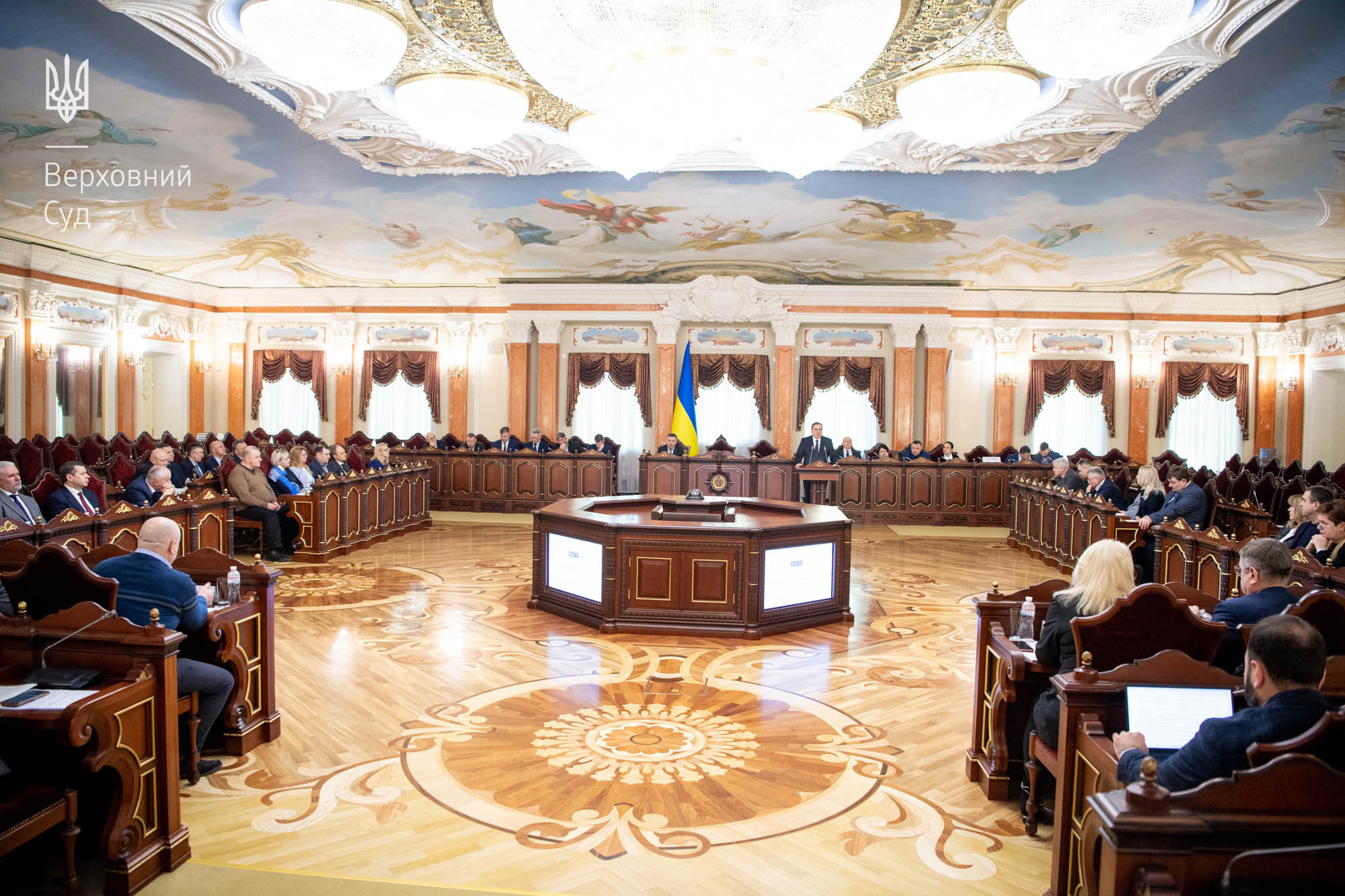Contact center of the Ukrainian Judiciary 044 207-35-46
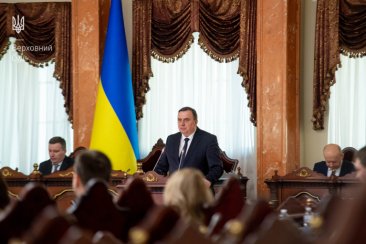
The heads of the judiciary and representatives of the highest state institutions discussed the state of administration of justice and functioning of the judiciary over the past year during a meeting with the heads of courts of appeal organised by the Supreme Court with the support of the OSCE.
Stanislav Kravchenko, President of the Supreme Court, noted that the discussion was a logical continuation of the final plenary session of the Supreme Court, which presented information on the state of administration of justice, outlined the main challenges faced by the courts, especially in the context of Russia's full-scale invasion of Ukraine, and outlined the prospects for further development of the judiciary.
Analysing the court statistics, Stanislav Kravchenko stressed that the number of cases submitted to Ukrainian courts in 2024 increased in almost all key indicators compared to the previous year. At the same time, the judicial system has once again managed to strike a balance between the volume of cases received and considered. Thus, the judicial system has demonstrated resilience and the ability to function effectively in an extremely challenging environment.
The President of the Supreme Court drew attention to the role of national courts in war crimes proceedings and said that the Supreme Court promptly responds to legal challenges related to the war, providing legal certainty and predictability to guide case law in a unified direction.
‘’The quality of our work now will determine the effectiveness of bringing to justice those responsible for war crimes and filling the international Register of Damages Caused by the Aggression of the Russian Federation,‘’ explained Stanislav Kravchenko.
The President of the Supreme Court informed the audience about the key legal conclusions of the Supreme Court, in particular, on the crime of aggression, the change of canonical affiliation by a religious community, the qualification of collaboration, social and family rights, which are closely related to the peculiarities caused by martial law.
Stanislav Kravchenko also emphasised the importance of the case law of appellate courts in matters that are not subject to cassation review.
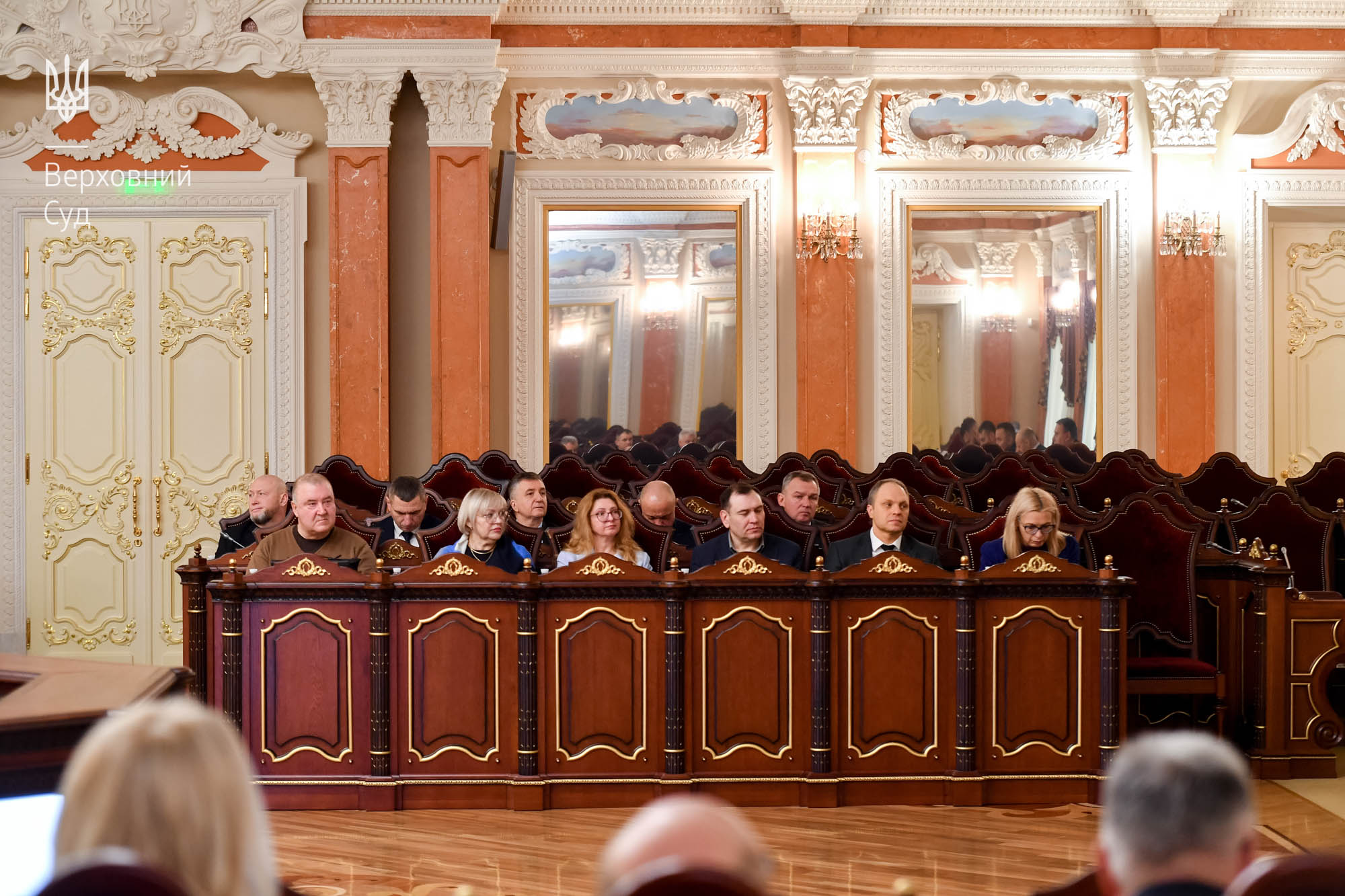
Among other things, in the context of ensuring stable and predictable case law, Stanislav Kravchenko drew attention to the need to partially improve procedural legislation, such as the introduction of additional tools to ensure the unity of case law, expanding the possibilities of written proceedings, creating effective cassation filters (primarily in administrative proceedings), and improving the institution of exemplary cases.
The SC President emphasised that one of the most acute problems of the judiciary is the critical shortage of judicial personnel. In addition, the low level of salaries of court staff causes an outflow of qualified specialists, which negatively affects the efficiency of the judicial system. He emphasised the need to resolve these issues as soon as possible, in particular by speeding up the competitive procedures for filling vacant judicial positions.
Stanislav Kravchenko also noted that the issue of changing the court network has been discussed for more than a year, but no real progress has been made so far.
In addition, the President of the Supreme Court noted Ukraine's progress on the European integration path, calling on all representatives of the judiciary, each in their place, to join the implementation of the Roadmap for European Integration of Ukraine after its final approval, as the measures it provides for will contribute to the development of our country.
In conclusion, Stanislav Kravchenko, on behalf of the Supreme Court and the entire judiciary, sincerely thanked all those present for their hard work and significant contribution to ensuring the rights of citizens to fair judicial protection.
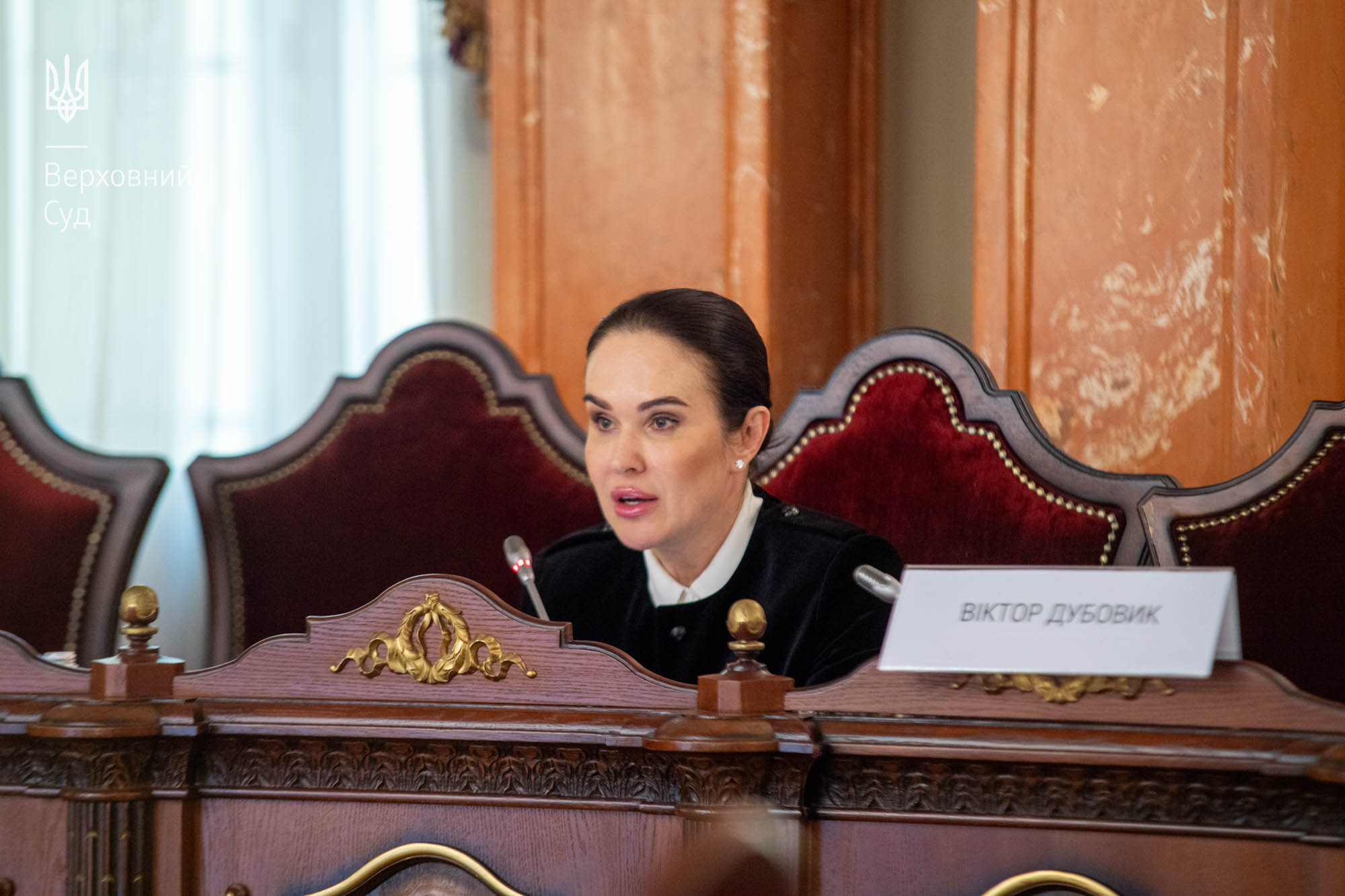
Iryna Mudra, Deputy Head of the Office of the President of Ukraine, expressed her vision of the key problems of the judiciary and outlined the main development priorities for today.
Iryna Mudra emphasised the importance of approving integrity criteria and taking them into account when deciding on issues related to judicial career and responsibility, as well as the need to promptly bring the legal opinions of the Supreme Court in war-related cases to the courts of appeal.
The Deputy Head of the Office of the President of Ukraine touched upon the issue of staff shortage as one of the key problems of the judiciary. This problem results in an excessive workload for judges, and thus a violation of reasonable time limits. In 2024, the situation improved somewhat due to the appointment of judges by the President of Ukraine.
The speaker also informed about the general range of issues that will be covered in the Strategy for the Development of the Justice System and Constitutional Justice, a draft of which is currently being prepared by the Office of the President of Ukraine.
Iryna Mudra expressed her gratitude to judges and court staff for restoring public faith in justice despite all the difficulties and challenges.

Dmytro Lubinets, the Ukrainian Parliament Commissioner for Human Rights, drew attention to the problems of considering court cases in which case files were lost due to the armed aggression of the Russian Federation. He informed about a significant number of appeals related to this issue.
The Commissioner also stressed that the staffing problem in the courts affects the observance of human rights. In this context, Dmytro Lubinets focused on the need to simplify competition procedures, as their complexity and lengthy duration impede the prompt filling of court vacancies, noting that he would take an active position to improve this situation.
The Ombudsman supported the need to urgently address the issue of changing the court network and assured that he would contribute to responding to this problem.
He also agreed with the need to take measures to address the problem of improper remuneration of court staff, informing that the relevant appeals are under consideration.
Concluding his speech, Dmytro Lubinets emphasised that the judiciary and the Commissioner for Human Rights can reinforce each other and called on representatives of the judiciary to submit proposals for the Commissioner's annual report to the Parliament.
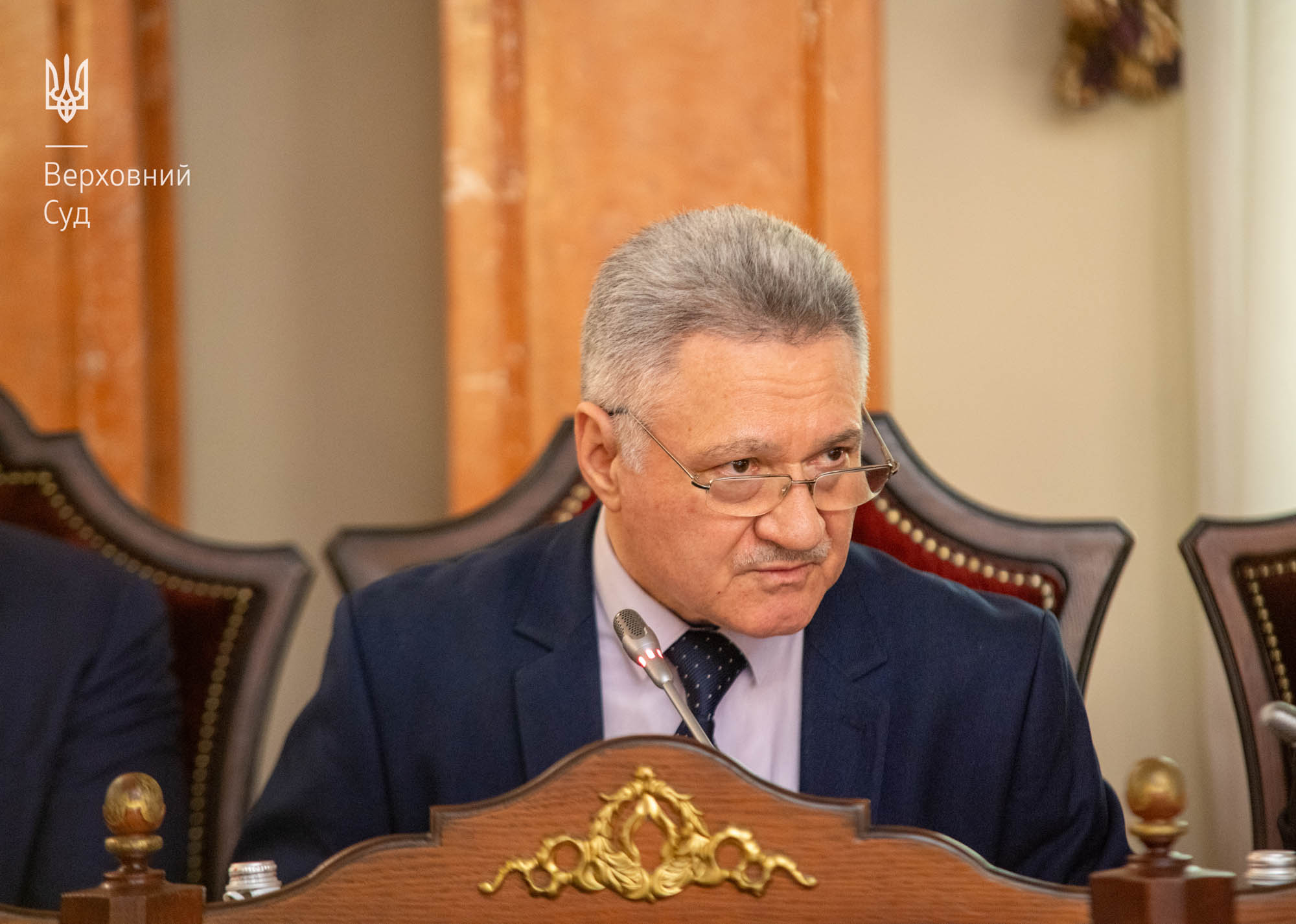
Hryhorii Usyk, representative of the High Council of Justice, while analysing the functioning of the justice system, drew attention to the problem of financing courts and the need to define standards and methods for judges' workload. Among other things, he drew attention to the problem of uneven workload in the courts and the need to use internal reserves to reduce the excessive workload of judges by sending judges on secondment.

Oleksii Omelian, Deputy Head of the High Qualification Commission of Judges of Ukraine, outlined the criteria that are taken into account when deciding on the issue of judges' secondments. He noted that the HQCJ of Ukraine tries to take into account the maximum number of factors to make the most balanced decisions on judges' secondments.
Regarding the competition to the courts of appeal, the speaker informed that the assessment of the practical works currently performed by the candidates is scheduled to be completed in late March - April. The Commission is making every effort to complete the competition as soon as possible and fill vacancies where necessary.
According to Oleksii Omelian, the HQCJ plans to complete the qualification exam for the selection of judges to first instance courts in August and then start conducting interviews to check the integrity of the candidates.
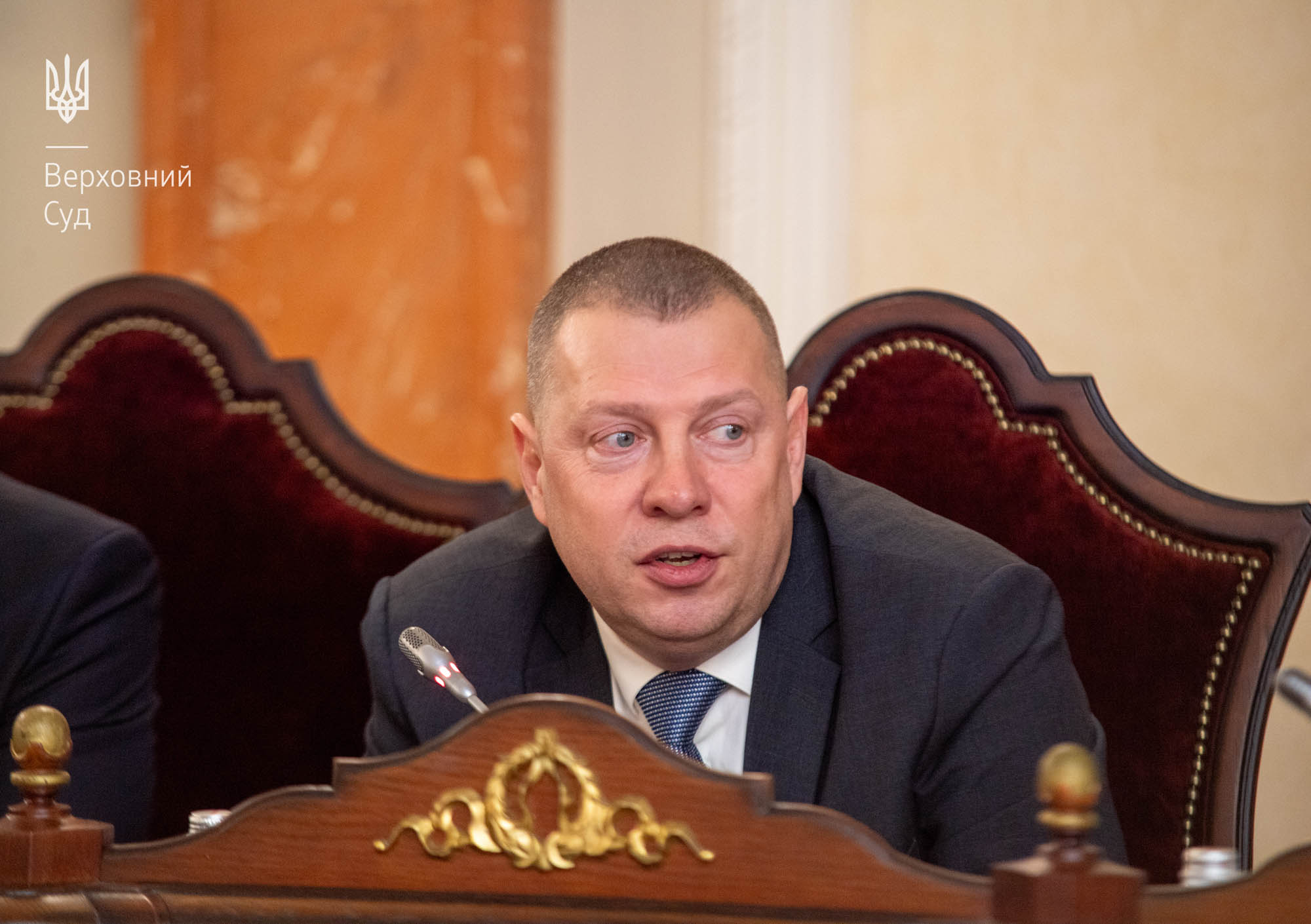
Chairman of the Council of Judges of Ukraine Bohdan Monich supported the position of the judiciary on optimising the court network according to the principle of ‘one district - one court’ with the possibility of leaving the premises of such a court in different localities. In addition, he drew attention to the problem of providing judges with a heavy workload with additional positions of judge assistants.
The speaker informed about the plans to hold a congress of judges of Ukraine, which will elect members of the High Council of Justice and judges of the Constitutional Court of Ukraine. The congress is scheduled to continue as soon as the Ethics Council provides candidates for the position of HCJ members.
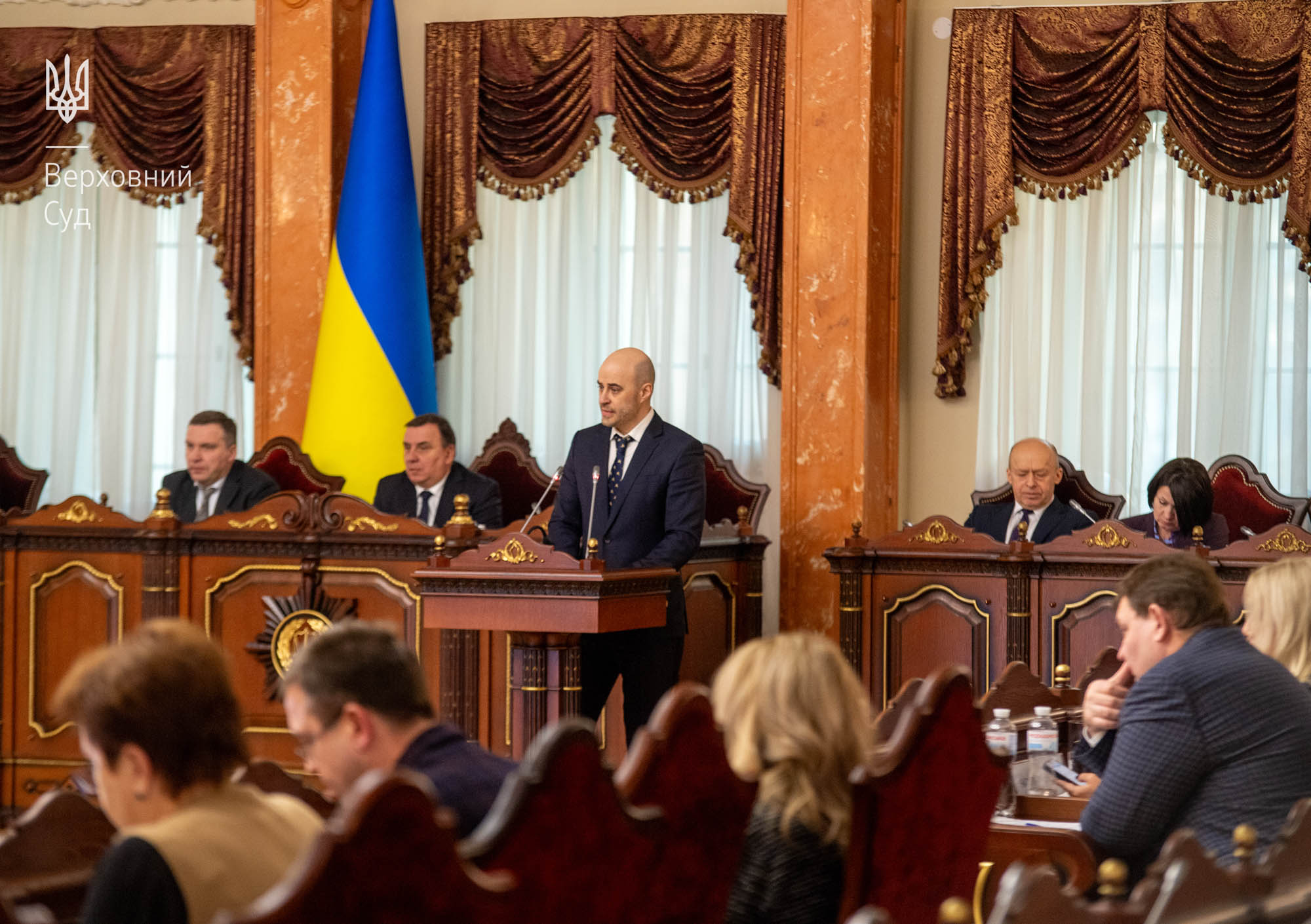
Acting Head of the SJA of Ukraine Maksym Pampura outlined the indicators of material support for courts in 2024 and informed about the presentation of the concept of the UJITS development and the search for alternative ways to finance the improvement of this system after the suspension of USAID support for this issue.
Regarding the problem of court funding, the speaker noted that the judiciary is funded at only 61% of the need. Maksym Pampura informed about the plans to increase the salaries of assistants, noting that the SJA of Ukraine is communicating with the Cabinet of Ministers on this issue, as its solution requires changes to regulations.
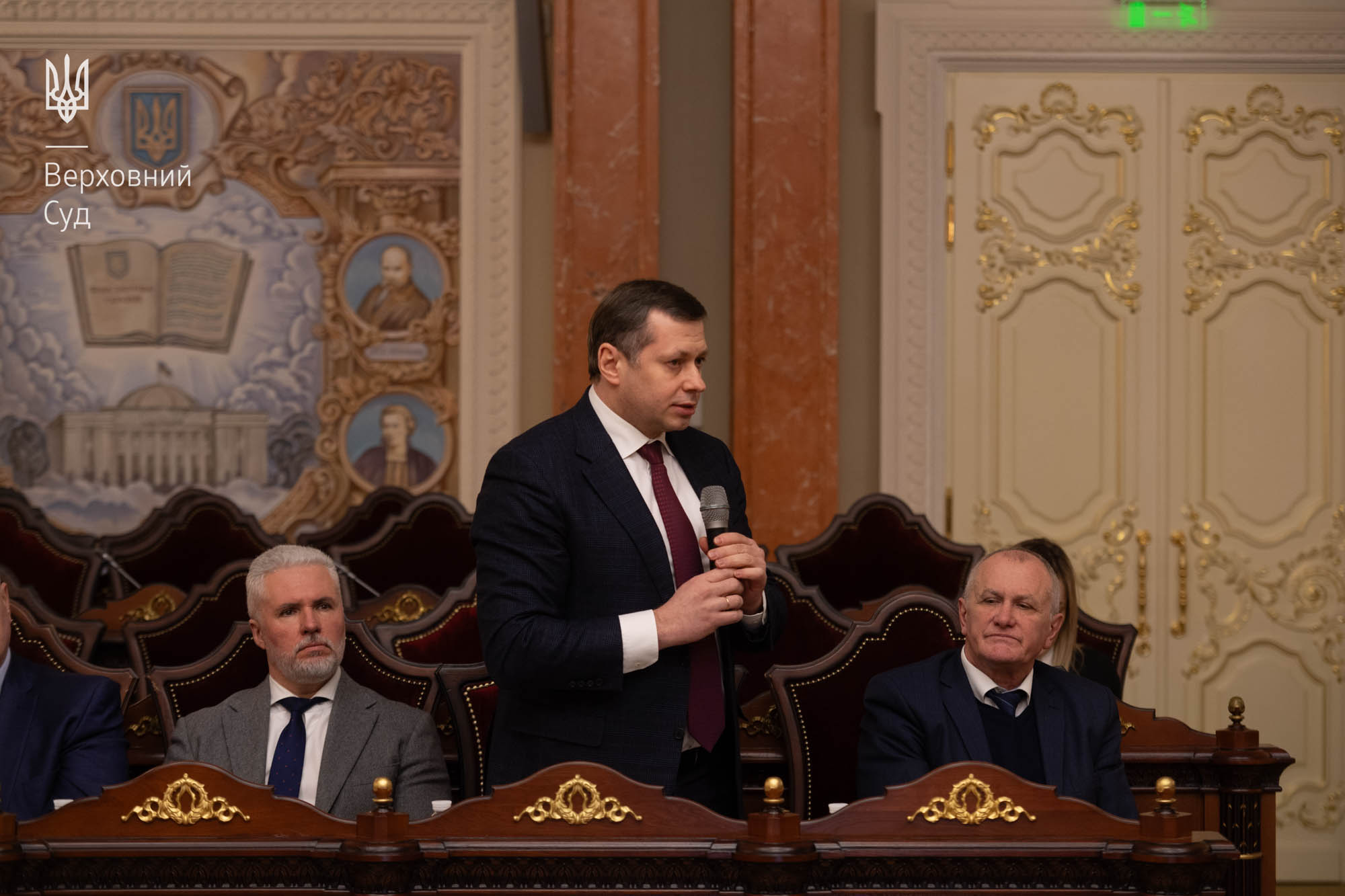
The meeting was attended by the leadership of the Supreme Court, heads of appellate courts of all jurisdictions, member of the High Council of Justice Hryhorii Usyk, Deputy Head of the HQCJ Oleksii Omelian, Head of the Council of Judges of Ukraine Bohdan Monich, Acting Head of the State Judicial Administration of Ukraine Maksym Pampura, Deputy Head of the Office of the President of Ukraine Iryna Mudra, Head of the Verkhovna Rada Committee on Legal Policy Denys Maslov, and Ukrainian Parliament Commissioner for Human Rights Dmytro Lubinets.
